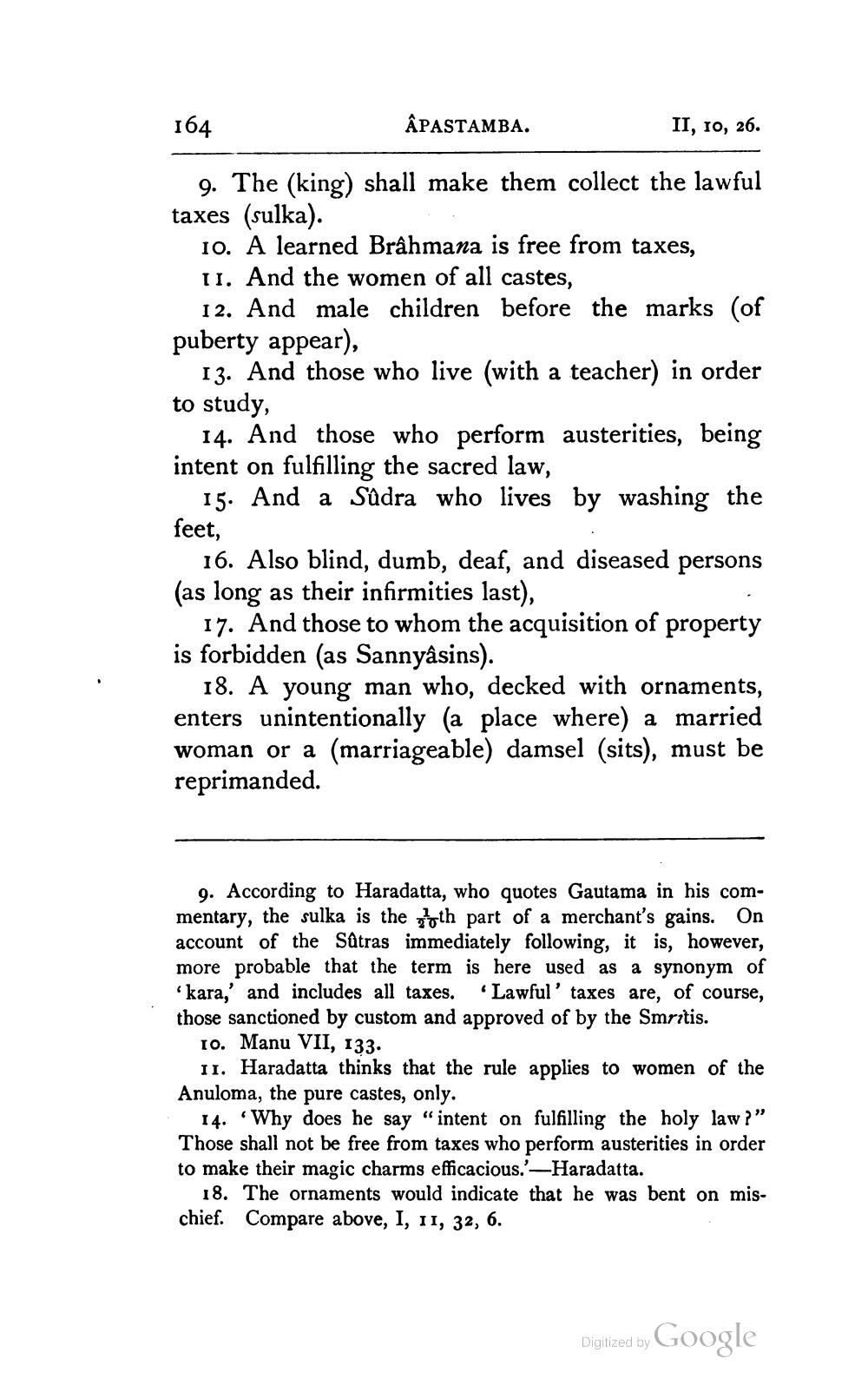________________
164
ÂPASTAMBA.
II, 10, 26.
9. The (king) shall make them collect the lawful taxes (sulka).
10. A learned Brâhmana is free from taxes,
II. And the women of all castes,
12. And male children before the marks (of puberty appear),
13. And those who live (with a teacher) in order to study,
14. And those who perform austerities, being intent on fulfilling the sacred law,
15. And a Sûdra who lives by washing the
feet,
16. Also blind, dumb, deaf, and diseased persons (as long as their infirmities last),
17. And those to whom the acquisition of property is forbidden (as Sannyasins).
18. A young man who, decked with ornaments, enters unintentionally (a place where) a married woman or a (marriageable) damsel (sits), must be reprimanded.
9. According to Haradatta, who quotes Gautama in his commentary, the sulka is theth part of a merchant's gains. On account of the Sutras immediately following, it is, however, more probable that the term is here used as a synonym of 'kara,' and includes all taxes. 'Lawful' taxes are, of course, those sanctioned by custom and approved of by the Smritis.
10. Manu VII, 133.
II. Haradatta thinks that the rule applies to women of the Anuloma, the pure castes, only.
14. Why does he say "intent on fulfilling the holy law?" Those shall not be free from taxes who perform austerities in order to make their magic charms efficacious.'-Haradatta.
18. The ornaments would indicate that he was bent on mischief. Compare above, I, 11, 32, 6.
Google
Digitized by




